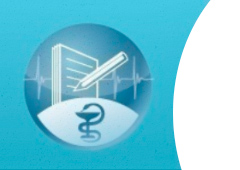Today, January 10, 2018 in the Scientific Center of Pediatrics and Children's Surgery, a joint meeting of the Center's specialists with the teaching staff of the Department of Children's Diseases No. 2 of the Kazakh National Medical University was held to discuss the Message of the President of the Republic of Kazakhstan N. Nazarbayev to the people of Kazakhstan "New Development Opportunities in the Conditions of the Fourth Industrial Revolution ".
With the Message of the Head of the State to the people of Kazakhstan, the team was acquainted with the Director of Boranbayev Riza Zulkarnaevna.
The President's Address states that today the world enters the era of the Fourth Industrial Revolution, an era of profound and rapid changes: technological, economic and social. Kazakhstan is ready for global changes and challenges. All the necessary programs for the development of the Republic of Kazakhstan exist. This message determines what we have to do for successful adaptation in a new world - the world of the Fourth Industrial Revolution. President N. Nazarbayev defined three basic directions, which are the systemic triad of Kazakhstani modernization. This is the modernization of the economy, politics and national consciousness.
In the Address, the President sets great tasks, stressing that for their implementation it is necessary to unite in a single nation, a nation on the verge of a historic ascent under the conditions of the Fourth Industrial Revolution.
In the implementation of the 7 objectives of "Human Capital - the basis for modernization" of the Address, the goals for the development of first-class public health and a healthy nation in the Republic of Kazakhstan are defined. Modern health care should focus on the prevention of diseases. It is necessary to strengthen the management of public health, promoting a healthy lifestyle. Pay special attention to the protection and strengthening of reproductive health. Boldly and actively implement the management of major chronic diseases with the use of remote diagnosis and outpatient treatment. Increase the availability and effectiveness of medical assistance through the integration of information systems, the use of mobile digital applications, the introduction of electronic health passports, the transition to "paperless" hospitals. Introduce technologies of genetic analysis and artificial intelligence, which increase the effectiveness of diagnosis and treatment of diseases. Step by step introduce mandatory medical insurance. Develop a new model of guaranteed volume of free medical care. Develop a new version of the Code "On the health of the people and the health care system".
{gallery}News_10.01.2018{/gallery}














